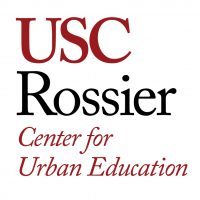
A new Center for Urban Education (CUE) report reveals how community college faculty, staff and administrators who act as agents of change have the greatest positive impact on Latino/a student success, especially in STEM fields. However, too few institutions have policies and practices targeted towards the success of this student population.
CUE Co-Directors Estela Mara Bensimon and Alicia Dowd co-authored the National Science Foundation-funded report with doctoral students Megan Chase, Misty Sawatzky, Linda Taing Shieh, Raquel Rall, and Tiffany Jones.
The authors found that change agents create conditions for the success of Latina and Latino students by helping them navigate educational pathways, understand cultural norms in STEM fields, and adapt teaching practices to fit with students’ learning skills and background.
The potential of change agents is most critical at Hispanic-Serving Institutions (HSIs), where at least 25 percent of enrolled students are Latino/a. While these two-and four-year institutions are eligible for federal funding based on their HSI designation, CUE researchers argue that funding should be used to develop practices and benchmarks that will facilitate the effective transfer and graduation of Latinas and Latinos in STEM fields.
The report, Community College Change Agents at HSIs: Stewarding HSI-STEM Funds for Latino Student Success in STEM, offers case studies of best practices and practitioners from HSIs in California and Texas – states which combined receive 66 percent of HSI-STEM grant funds.
Among the case study findings were key roles change agents play for Latina and Latino students in STEM. For example, culturally aware teaching practices allow instructors to recognize when student do not know how to study. Color-blindness, on the other hand, is a barrier to student success as it discourages monitoring of Latino/a students and their performance in STEM.



